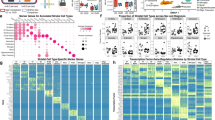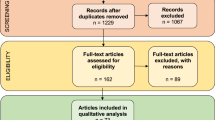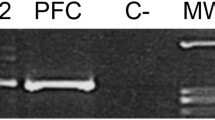Abstract
Introduction
Non-medical use of prescription opioids such as the mu opioid receptor (MOP-r) agonist oxycodone is a growing problem in the USA and elsewhere. There is limited information about oxycodone’s impact on diverse gene systems in the brain.
Objectives
The current study was designed to examine how chronic oxycodone self-administration (SA) affects gene expression in the terminal areas of the nigrostriatal and mesolimbic dopaminergic pathways in mice.
Method
Adult male C57BL/6J mice underwent a 14-day oxycodone self-administration procedure (4 h/day, 0.25 mg/kg/infusion, FR1) and were euthanized 1 h after the last session. The dorsal and ventral striata were dissected, and total RNAs were extracted. Gene expressions were examined using RNA sequencing.
Result
We found that oxycodone self-administration exposure led to alterations of expression in numerous genes related to inflammation/immune functions in the dorsal striatum (54 upregulated genes and 1 downregulated gene) and ventral striatum (126 upregulated genes and 15 downregulated genes), with 38 upregulated genes identified in both brain regions.
Conclusion
This study reveals novel neurobiological mechanisms underlying some of the effects of a commonly abused prescription opioid. We propose that inflammation/immune gene systems may undergo a major change during chronic self-administration of oxycodone.







Similar content being viewed by others
References
Alkhatib G, Berger EA (2007) HIV coreceptors: from discovery and designation to new paradigms and promise. Eur J Med Res 12:375–384
Allen SJ, Crown SE, Handel TM (2007) Chemokine: receptor structure, interactions, and antagonism. Annu Rev Immunol 25:787–820. doi:10.1146/annurev.immunol.24.021605.090529
Aloisi F (2001) Immune function of microglia. Glia 36:165–179
Andrews S (2010) FastQC: a quality control tool for high throughput sequence data. Available: http://www.bioinformatics.babraham.ac.uk?/projects/fastqc/. Accessed 6 Oct 2011
Ashburner M et al (2000) Gene Ontology: tool for the unification of biology. The Gene Ontology consortium. Nat Genet 25:25–29. doi:10.1038/75556
Auvity S et al (2016) Acute morphine exposure increases the brain distribution of [18F]DPA-714, a PET biomarker of glial activation in nonhuman primates. Int J Neuropsychopharmacol. doi:10.1093/ijnp/pyw077
Barker JM, Taylor JR (2014) Habitual alcohol seeking: modeling the transition from casual drinking to addiction. Neurosci Biobehav Rev 47:281–294. doi:10.1016/j.neubiorev.2014.08.012
Beardsley PM, Aceto MD, Cook CD, Bowman ER, Newman JL, Harris LS (2004) Discriminative stimulus, reinforcing, physical dependence, and antinociceptive effects of oxycodone in mice, rats, and rhesus monkeys. Exp Clin Psychopharmacol 12:163–172. doi:10.1037/1064-1297.12.3.163
Belin D, Jonkman S, Dickinson A, Robbins TW, Everitt BJ (2009) Parallel and interactive learning processes within the basal ganglia: relevance for the understanding of addiction. Behav Brain Res 199:89–102. doi:10.1016/j.bbr.2008.09.027
Bland ST, Hutchinson MR, Maier SF, Watkins LR, Johnson KW (2009) The glial activation inhibitor AV411 reduces morphine-induced nucleus accumbens dopamine release. Brain Behav Immun 23:492–497. doi:10.1016/j.bbi.2009.01.014
Boulanger LM (2009) Immune proteins in brain development and synaptic plasticity. Neuron 64:93–109. doi:10.1016/j.neuron.2009.09.001
Brown H, Kozlowski R, Perry H (1998) The importance of ion channels for macrophage and microglial activation in vitro. Glia 22:94–97
Chen C, Li J, Bot G, Szabo I, Rogers TJ, Liu-Chen LY (2004) Heterodimerization and cross-desensitization between the mu-opioid receptor and the chemokine CCR5 receptor. Eur J Pharmacol 483:175–186
Cui C, Shurtleff D, Harris RA (2014) Neuroimmune mechanisms of alcohol and drug addiction. Int Rev Neurobiol 118:1–12. doi:10.1016/b978-0-12-801284-0.00001-4
DeLuca DS et al (2012) RNA-SeQC: RNA-seq metrics for quality control and process optimization. Bioinformatics 28:1530–1532. doi:10.1093/bioinformatics/bts196
Di Chiara G, Imperato A (1988a) Drugs abused by humans preferentially increase synaptic dopamine concentrations in the mesolimbic system of freely moving rats. Proc Natl Acad Sci U S A 85:5274–5278
Di Chiara G, Imperato A (1988b) Opposite effects of mu and kappa opiate agonists on dopamine release in the nucleus accumbens and in the dorsal caudate of freely moving rats. J Pharmacol Exp Ther 244:1067–1080
Dobin A et al (2013) STAR: ultrafast universal RNA-seq aligner. Bioinformatics 29:15–21. doi:10.1093/bioinformatics/bts635
Everitt BJ (2014) Neural and psychological mechanisms underlying compulsive drug seeking habits and drug memories—indications for novel treatments of addiction. Eur J Neurosci 40:2163–2182. doi:10.1111/ejn.12644
Everitt BJ, Robbins TW (2013) From the ventral to the dorsal striatum: devolving views of their roles in drug addiction. Neurosci Biobehav Rev 37:1946–1954. doi:10.1016/j.neubiorev.2013.02.010
Fecho K, Maslonek KA, Dykstra LA, Lysle DT (1996) Assessment of the involvement of central nervous system and peripheral opioid receptors in the immunomodulatory effects of acute morphine treatment in rats. J Pharmacol Exp Ther 276:626–636
Gates TM, Cysique LA, Siefried KJ, Chaganti J, Moffat KJ, Brew BJ (2016) Maraviroc-intensified combined antiretroviral therapy improves cognition in virally suppressed HIV-associated neurocognitive disorder. AIDS (London, England) 30:591–600. doi:10.1097/qad.0000000000000951
Goldman D, Domschke K (2014) Making sense of deep sequencing. Int J Neuropsychopharmacol 17:1717–1725. doi:10.1017/s1461145714000789
Hassan HE, Myers AL, Lee IJ, Coop A, Eddington ND (2007) Oxycodone induces overexpression of P-glycoprotein (ABCB1) and affects paclitaxel’s tissue distribution in Sprague Dawley rats. J Pharm Sci 96:2494–2506. doi:10.1002/jps.20893
Hutchinson MR et al (2009) Reduction of opioid withdrawal and potentiation of acute opioid analgesia by systemic AV411 (ibudilast). Brain Behav Immun 23:240–250. doi:10.1016/j.bbi.2008.09.012
Institute of Laboratory Animal Resources Commission on Life Sciences, National Research Council (2016) Guide for the care and use of laboratory animals. National Academy of Sciences, Washington, DC
Kanehisa M, Goto S (2000) KEGG: kyoto encyclopedia of genes and genomes. Nucleic Acids Res 28:27–30
Kaslow RA, Dorak T, Tang JJ (2005) Influence of host genetic variation on susceptibility to HIV type 1 infection. The Journal of Infectious Diseases 191(Suppl 1):S68–S77. doi:10.1086/425269
Kim MB, Giesler KE, Tahirovic YA, Truax VM, Liotta DC, Wilson LJ (2016) CCR5 receptor antagonists in preclinical to phase II clinical development for treatment of HIV. Expert Opin Investig Drugs 25:1377–1392. doi:10.1080/13543784.2016.1254615
Koob GF, Volkow ND (2010) Neurocircuitry of addiction. Neuropsychopharmacology 35:217–238. doi:10.1038/npp.2009.110
Kramer V, Hassounah S, Colby-Germinario S, Mesplede T, Lefebvre E, Wainberg M (2014) Cenicriviroc blocks HIV entry but does not lead to redistribution of HIV into extracellular space like maraviroc. J Int AIDS Soc 17:19531. doi:10.7448/ias.17.4.19531
Kust B, Buttini M, Sauter A, Boddeke HW, Gebicke-Haerter PJ (1997) K(+)-channels and cytokines as markers for microglial activation. Adv Exp Med Biol 429:109–117
Lawson LJ, Perry VH, Gordon S (1992) Turnover of resident microglia in the normal adult mouse brain. Neuroscience 48:405–415
Liao Y, Smyth GK, Shi W (2014) featureCounts: an efficient general purpose program for assigning sequence reads to genomic features. Bioinformatics 30:923–930. doi:10.1093/bioinformatics/btt656
Lindvall O, Bjorklund A, Skagerberg G (1984) Selective histochemical demonstration of dopamine terminal systems in rat di- and telencephalon: new evidence for dopaminergic innervation of hypothalamic neurosecretory nuclei. Brain Res 306:19–30
Lobo MK, Nestler EJ (2011) The striatal balancing act in drug addiction: distinct roles of direct and indirect pathway medium spiny neurons. Front Neuroanat 5:41. doi:10.3389/fnana.2011.00041
Love MI, Huber W, Anders S (2014) Moderated estimation of fold change and dispersion for RNA-seq data with DESeq2. Genome Biol 15:550. doi:10.1186/s13059-014-0550-8
Mahajan SD, Schwartz SA, Shanahan TC, Chawda RP, Nair MP (2002) Morphine regulates gene expression of alpha- and beta-chemokines and their receptors on astroglial cells via the opioid mu receptor. Journal of Immunology (Baltimore, MD: 1950) 169:3589–3599
Mahajan SD, Schwartz SA, Aalinkeel R, Chawda RP, Sykes DE, Nair MP (2005) Morphine modulates chemokine gene regulation in normal human astrocytes. Clinical Immunology (Orlando, FL) 115:323–332. doi:10.1016/j.clim.2005.02.004
Manfredi B, Sacerdote P, Bianchi M, Locatelli L, Veljic-Radulovic J, Panerai AE (1993) Evidence for an opioid inhibitory effect on T cell proliferation. J Neuroimmunol 44:43–48
Mayer-Blackwell B, Schlussman SD, Butelman ER, Ho A, Ott J, Kreek MJ, Zhang Y (2014) Self administration of oxycodone by adolescent and adult mice affects striatal neurotransmitter receptor gene expression. Neuroscience 258:280–291. doi:10.1016/j.neuroscience.2013.10.062
Miller AH, Haroon E, Raison CL, Felger JC (2013) Cytokine targets in the brain: impact on neurotransmitters and neurocircuits. Depression and Anxiety 30:297–306. doi:10.1002/da.22084
Miyagi T, Chuang LF, Doi RH, Carlos MP, Torres JV, Chuang RY (2000) Morphine induces gene expression of CCR5 in human CEMx174 lymphocytes. J Biol Chem 275:31305–31310. doi:10.1074/jbc.M001269200
Ndhlovu LC et al (2014) Treatment intensification with maraviroc (CCR5 antagonist) leads to declines in CD16-expressing monocytes in cART-suppressed chronic HIV-infected subjects and is associated with improvements in neurocognitive test performance: implications for HIV-associated neurocognitive disease (HAND). J Neurovirol 20:571–582. doi:10.1007/s13365-014-0279-x
Neri M, Panata L, Bacci M, Fiore C, Riezzo I, Turillazzi E, Fineschi V (2013) Cytokines, chaperones and neuroinflammatory responses in heroin-related death: what can we learn from different patterns of cellular expression? Int J Mol Sci 14:19831–19845. doi:10.3390/ijms141019831
Novick DM, Ochshorn M, Ghali V, Croxson TS, Mercer WD, Chiorazzi N, Kreek MJ (1989) Natural killer cell activity and lymphocyte subsets in parenteral heroin abusers and long-term methadone maintenance patients. J Pharmacol Exp Ther 250:606–610
Olsen CM (2011) Natural rewards, neuroplasticity, and non-drug addictions. Neuropharmacology 61:1109–1122. doi:10.1016/j.neuropharm.2011.03.010
Paulozzi LJ, Strickler GK, Kreiner PW, Koris CM (2015) Controlled substance prescribing patterns—prescription behavior surveillance system, eight states, 2013 morbidity and mortality weekly report. Surveillance Summaries (Washington, DC: 2002) 64:1–14. doi:10.15585/mmwr.ss6409a1
Porrino LJ, Smith HR, Nader MA, Beveridge TJ (2007) The effects of cocaine: a shifting target over the course of addiction. Prog Neuro-Psychopharmacol Biol Psychiatry 31:1593–1600. doi:10.1016/j.pnpbp.2007.08.040
Raport CJ, Gosling J, Schweickart VL, Gray PW, Charo IF (1996) Molecular cloning and functional characterization of a novel human CC chemokine receptor (CCR5) for RANTES, MIP-1beta, and MIP-1alpha. J Biol Chem 271:17161–17166
Romano Ibarra GS et al (2016) Efficient modification of the CCR5 locus in primary human T cells with megaTAL nuclease establishes HIV-1 resistance. Molecular Therapy Nucleic Acids 5:e352. doi:10.1038/mtna.2016.56
Sacerdote P, Manfredi B, Mantegazza P, Panerai AE (1997) Antinociceptive and immunosuppressive effects of opiate drugs: a structure-related activity study. Br J Pharmacol 121:834–840. doi:10.1038/sj.bjp.0701138
Skagerberg G, Lindvall O, Bjorklund A (1984) Origin, course and termination of the mesohabenular dopamine pathway in the rat. Brain Res 307:99–108
Sorce S, Myburgh R, Krause KH (2011) The chemokine receptor CCR5 in the central nervous system. Prog Neurobiol 93:297–311. doi:10.1016/j.pneurobio.2010.12.003
Suzuki S, Carlos MP, Chuang LF, Torres JV, Doi RH, Chuang RY (2002a) Methadone induces CCR5 and promotes AIDS virus infection. FEBS Lett 519:173–177
Suzuki S, Chuang AJ, Chuang LF, Doi RH, Chuang RY (2002b) Morphine promotes simian acquired immunodeficiency syndrome virus replication in monkey peripheral mononuclear cells: induction of CC chemokine receptor 5 expression for virus entry. The Journal of Infectious Diseases 185:1826–1829. doi:10.1086/340816
Szabo I et al (2003) Selective inactivation of CCR5 and decreased infectivity of R5 HIV-1 strains mediated by opioid-induced heterologous desensitization. J Leukoc Biol 74:1074–1082. doi:10.1189/jlb.0203067
Tooyama I et al (2002) Morphologic study of neuronal death, glial activation, and progenitor cell division in the hippocampus of rat models of epilepsy. Epilepsia 43(Suppl 9):39–43
Wang X et al (2012) Morphine activates neuroinflammation in a manner parallel to endotoxin. Proc Natl Acad Sci U S A 109:6325–6330. doi:10.1073/pnas.1200130109
Wang C et al (2014) The concordance between RNA-seq and microarray data depends on chemical treatment and transcript abundance. Nat Biotechnol 32:926–932. doi:10.1038/nbt.3001
West JP, Dykstra LA, Lysle DT (1998) Differential tolerance to morphine’s immunomodulatory effects following continuous administration. Drug Alcohol Depend 53:31–38
Westmoreland SV, Alvarez X, deBakker C, Aye P, Wilson ML, Williams KC, Lackner AA (2002) Developmental expression patterns of CCR5 and CXCR4 in the rhesus macaque brain. J Neuroimmunol 122:146–158
Zhang Y, Picetti R, Butelman ER, Schlussman SD, Ho A, Kreek MJ (2009) Behavioral and neurochemical changes induced by oxycodone differ between adolescent and adult mice. Neuropsychopharmacology 34:912–922. doi:10.1038/npp.2008.134
Zhang Y et al (2014) Extended access oxycodone self-administration and neurotransmitter receptor gene expression in the dorsal striatum of adult C57BL/6 J mice. Psychopharmacology 231:1277–1287. doi:10.1007/s00213-013-3306-3
Zhang Y et al (2015) Self administration of oxycodone alters synaptic plasticity gene expression in the hippocampus differentially in male adolescent and adult mice. Neuroscience 285:34–46. doi:10.1016/j.neuroscience.2014.11.013
Acknowledgments
This work was supported by NIH 1R01DA029147 (YZ) and the Dr. Miriam and Sheldon G. Adelson Medical Research Foundation (MJK). Y. Liang is supported by the NIH Center for Clinical and Translational Science Award (CTSA) and the National Center for Advancing Sciences (NCATS).
We thank Dr. Yuval Itan from Dr. Jean-Laurent Casanova’s laboratory at the Rockefeller University for his help with the functional enrichment analyses.
We thank Dr. Tom Rogers for his interpretation of the data and suggestions for this manuscript.
We thank Dr. Ann Ho, Dr. Eduardo Butelman, and Susan Russo for proofreading the manuscript.
We thank Dr. Kyle Windisch for her assistance in manuscript preparation.
Author information
Authors and Affiliations
Corresponding author
Ethics declarations
Animal care and experimental procedures were conducted according to the Guide for the Care and Use of Laboratory Animals. The experimental protocols used were approved by the Institutional Animal Care and Use Committee of the Rockefeller University.
Conflict of interest
The authors declare that, except for income received from our primary employer, no financial support or compensation has been received from any individual or corporate entity over the past 3 years for research or professional service and there are no personal financial holdings that could be perceived as constituting a potential conflict of interest.
Rights and permissions
About this article
Cite this article
Zhang, Y., Liang, Y., Levran, O. et al. Alterations of expression of inflammation/immune-related genes in the dorsal and ventral striatum of adult C57BL/6J mice following chronic oxycodone self-administration: a RNA sequencing study. Psychopharmacology 234, 2259–2275 (2017). https://doi.org/10.1007/s00213-017-4657-y
Received:
Accepted:
Published:
Issue Date:
DOI: https://doi.org/10.1007/s00213-017-4657-y




